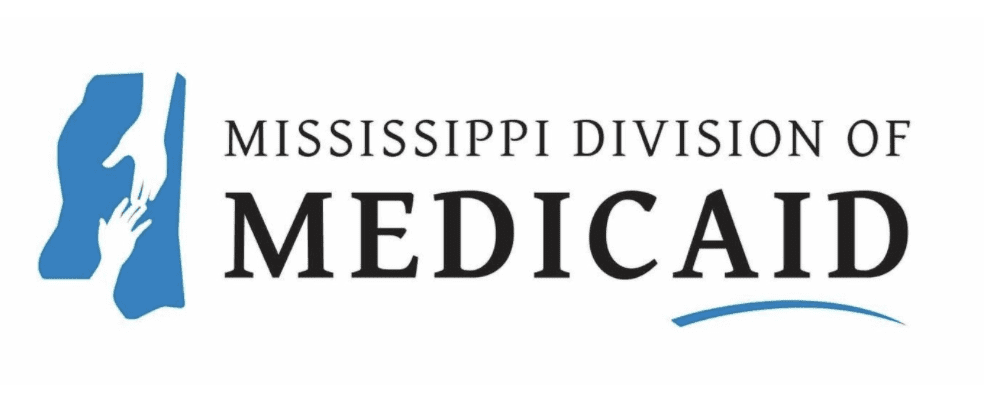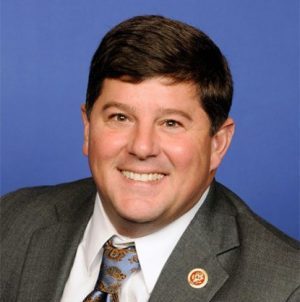
Any day now, lawmakers in each chamber could be taking up their version of the Medicaid Technical Amendments bill on the floor. SB 2799 authored by Senator Kevin Blackwell (R) and HB 1008 offered by Rep. Joey Hood (R) are said to be relatively similar in nature this year, at least at this point.
The Division of Medicaid is the most robust program the State of Mississippi oversees. Currently assisting nearly 800,000 Mississippians and receiving close to $900 million in Mississippi aid in the last few years, it is a $6.7 billion dollar industry largely supported by the Federal government.
Every four years the Legislature is faced with the task of making any adjustments to the program that are necessary. This year, there seem to be three main concerns that were voiced to members during pre-session hearings at the capitol:
- Remove the five percent reimbursement for remaining providers
- Streamline the credentialing process with Medicaid and Managed Care providers
- Extended coverage to eligible pregnant women from two to 12 months postpartum.
RELATED: Medicaid hearings begin at the capitol with tech bill on the docket for 2021 session
Currently, only the Senate bill contains all of these elements, but it is still early in the process.
Removing the five percent take back could be manageable, according the Medicaid Executive Director Drew Snyder.

“It’s an additional $10 million or so in state funding, it’s a big change,” said Snyder. “We’re in good shape today and I believe it’s something the program can incur but we have to consider years down the road and the impact it could have.”
He added that he did believe removing that five percent would help increase transparency in pricing.
At this point both the House and Senate versions of the bill streamline the credentialing process similarly. He said for prior authorizations they hope to make it look more like the Medicaid Fee for Service process.
Snyder expects around 80 changes to be made throughout the legislation this year, most of which are being done to address any technical language that may be obsolete and need to be deleted. This is simply a “clean up” aspect to the process.
If the Senate’s version moves forward with the eligibility component extended to pregnant women, Snyder said it would be about $80 million in federal share and $17.6 million from the state. It would apply to women whose income is up to 194% of the federal poverty rate.
“There’s more chatter about it,” said Snyder. He said directors in other states are also seeing legislation to assist postpartum pregnant women for a longer period of time.
A federal group, MACPAC (Medicaid and CHIP Payment and Access Commission) made a recommendation to Congress that states be mandated to provide 12 months of postpartum coverage at 100% federal match. Snyder said it was unclear at this time with a new Congress what the appetite will be regarding Medicaid.
“I think both versions do a good job of being provider friendly without being too taxpayer unfriendly,” said Snyder. “We expect there will be a lot more discussion about potential amendments, but I think people ought to be encouraged in this current stage of the bills.”
Even with the strain that all systems have seen throughout the COVID-19 pandemic, Snyder said they have been able to maintain an efficient, responsive program that has remained fiscally responsible.
“If you’ve seen one Medicaid program you’ve seen one Medicaid program,” said Snyder “We’re probably a top 25 program but we’re trying to be a top 10 or five.”
He said there are a lot of challenges in the state, particularly in improving health outcomes, but they are working hard to continue to meet the needs of those who rely on the program.
Since May of 2020, enrollment has significantly increased and sustained due to the COVID-19 pandemic. Nearly 100,000 Mississippians have begun relying on the program in that time. Medicaid has also seen several changes which are pandemic specific, including enhanced federal matches for services.
RELATED: Medicaid makes changes to offset impact of COVID-19
For instance, Snyder said the program has expanded access to Telemedicine services for the duration of the public health emergency. This timeline could last throughout the 2021 calendar year, according to remarks made by President Joe Biden. He said as more data comes through, they will be able to better assess if such assistance needs to be and can be sustained in the long-term.
“If we can expand access to Telehealth services but do it in a fiscally responsible manner, I think that’s progress for the state,” said Snyder.
One change requested by the Mississippi Hospital Association is the complete removal of Managed Care Operators. They told lawmakers in hearings that MCO’s were still not abiding by 2018’s SB 2836 that required annual audits of MCO providers and share data with hospitals. Tim Moore, MHA President said in the 2019 calendar year MCO’s made roughly $300 million in administration fees even while hospitals absorbed $616 million in uncompensated care – all while Mississippi paid $1.6 billion more in premiums than were made to providers.
Neither of the bills have any provisions that would remove the program completely. There is language that would increase transparency and accountability for the MCO’s.
Currently, there is a cap on the number of beneficiaries that can be enrolled in a managed care system, and the new legislation keeps that the same. However, it does allow for the CHIP Program to be included as an authority for Managed Care.
“I really appreciate the opportunity to work with Sen. Blackwell and Rep. Hood on the process,” said Snyder.
Since taking his position as Director, the Medicaid program has had three consecutive years with no state support deficit appropriation request. They also continue to have no plans to use $85 million from the capital expense fund.
Even with the great strides made by current leadership, the authority over the Medicaid program has been brought into question with HB 1013. Authored by House Ways and Means Chairman Rep. Trey Lamar (R), that bill would remove the Division of Medicaid from the office of the Governor and place it under a seven-member commission who would then be responsible for selecting the Executive Director and then maintain oversight of the program.
RELATED: Key MS House leader offers bill to restructure authority over Division of Medicaid
“Making a dramatic change is not going to improve health outcomes, lower trends or reduce patients,” said Snyder. “This proposed structure was last used in the 1980’s and struck down by the Supreme Court as unconstitutional.”
While he said he understands the idea that a commission structure gets “more eyes on Medicaid”, Snyder said that Medicaid has more checks and balances to meet than any other program the state runs.
“When the Legislature handed Medicaid to the Governor, at the time the program was running huge deficits. The current program is in really good shape and may be more appealing to some members than others,” said Snyder. “The idea that there is not enough oversight, I’m not sure that’s accurate.”
The bill has since passed Committee and is expected on the House floor.











